Strategies for improved graduate outcomes and institutional resilience at Egerton University
- Hits: 509
TAGDev 2.0 program at Egerton University on February 3, 2025, engaged Deans, Directors, and Chairs of Departments in a strategic forum to discuss ways to strengthen academic, research, and policy interventions for improved graduate outcomes and institutional resilience
The discussions were aimed at identifying institutional opportunities and actionable strategies that would ensure the university remains responsive to the changing industry and societal needs. Key areas such as curriculum alignment, graduate completion rates, policy development and implementation, inclusion & equity, research & extension services and institutionalizing entrepreneurship were discussed during the meeting.
The TAGDev 2.0 Program at Egerton University is honored to host partners from the TAGDev 2.0 Program at the University of Eldoret (U.O.E), led by the Program Coordinator, Prof. Julius Ochuodho and the Associate Program Officer, Kipkogei Chemitei. This visit aims to strengthen institutional relationships, facilitate experience-sharing, and explore strategic approaches for the successful implementation of TAGDev 2.0, building upon the lessons learned from TAGDev 1.0. Prof. Nancy Mungai, the TAGDev Program Coordinator at Egerton University, alongside the program secretariat, warmly welcomed the visiting team. As part of the visit, the team paid a courtesy call to Prof. Bernard O. Aduda (Deputy Vice-Chancellor Academics, Research & Extension). During the courtesy call, Prof. Aduda affirmed the university’s commitment to support the implementation of TAGDev Program, and challenged the team to do their best to deliver the Transformation Agenda of the program. He further encouraged the team to utilize the research funds prudently for the benefit of the two institutions and the nation at large. The team then proceeded to the university's Agro-Science Park. Here, they explored various seed crop exhibits and engaged with experts in the field, gaining first hand insights into Egerton University's legume and cereals seed initiatives.
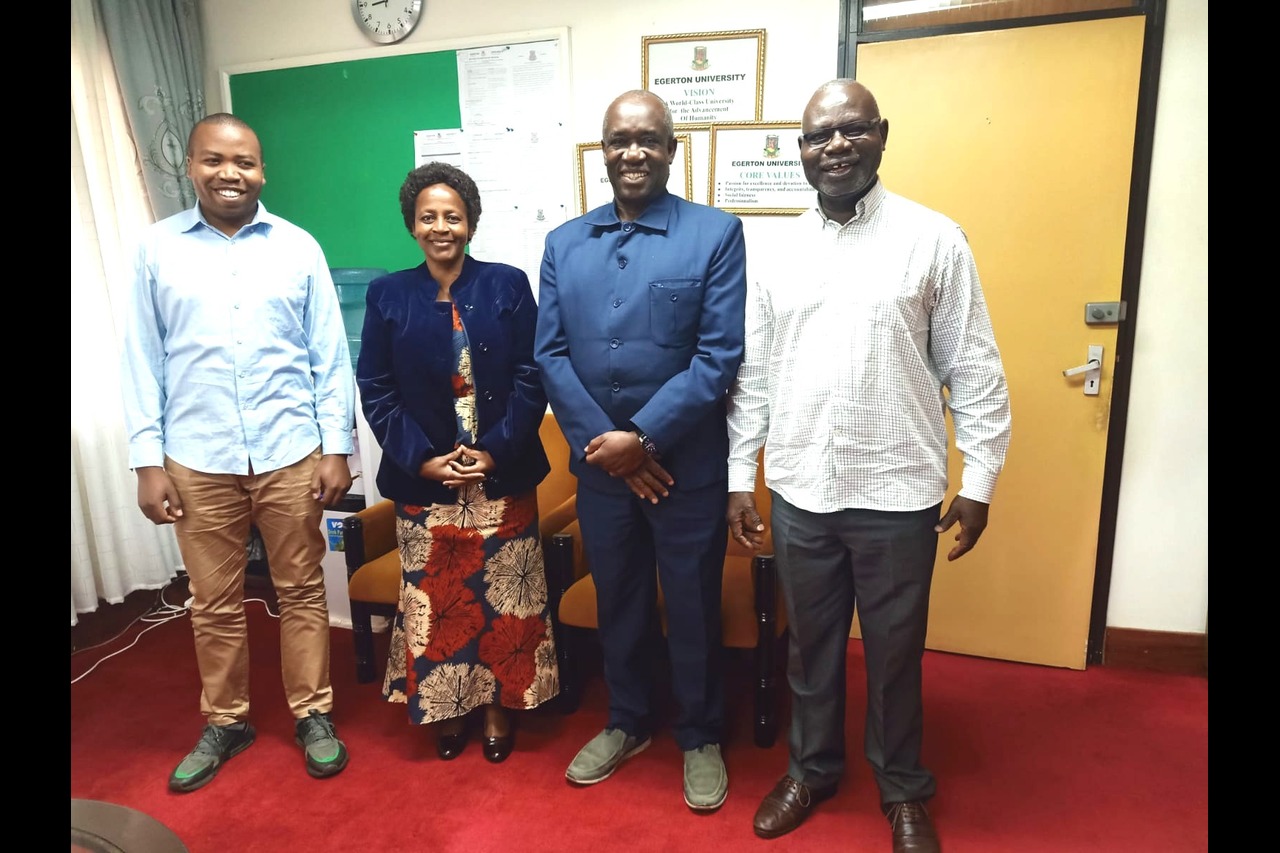 TAGDev 2.0 program, University of Eldoret( U.O.E) team, Prof Nancy Mungai(TAGDev 2.0 Program Coordinator at Egerton University) during the courtesy call to Prof. Bernard O. Aduda (Deputy Vice-Chancellor Academics, Research & Extension)
TAGDev 2.0 program, University of Eldoret( U.O.E) team, Prof Nancy Mungai(TAGDev 2.0 Program Coordinator at Egerton University) during the courtesy call to Prof. Bernard O. Aduda (Deputy Vice-Chancellor Academics, Research & Extension)
During the discussions, Prof. Julius Ochuodho expressed his gratitude for the opportunity to engage with Egerton University’s TAGDev team. He emphasized the importance of learning from TAGDev 1.0’s implementation to enhance sustainability and community impact. Having gained extensive experience from the first phase, Egerton University served as a valuable knowledge hub for the University of Eldoret team, eager to learn from successes, share challenges, and explore best practices.
Prof. Nancy Mungai provided insights into the program’s impact at various levels—individual, institutional and community. Key achievements of TAGDev 1.0 included entrepreneurship and incubation, supporting youth to develop agribusiness ventures; communication and advocacy, promoting inclusive participation and policy influence; internships and Field Attachment Programs (FAPs), enhancing students’ practical skills; scientific writing and publications, encouraging research dissemination; community action research projects, engaging students in hands-on problem-solving initiatives; scholarships and student transformation.
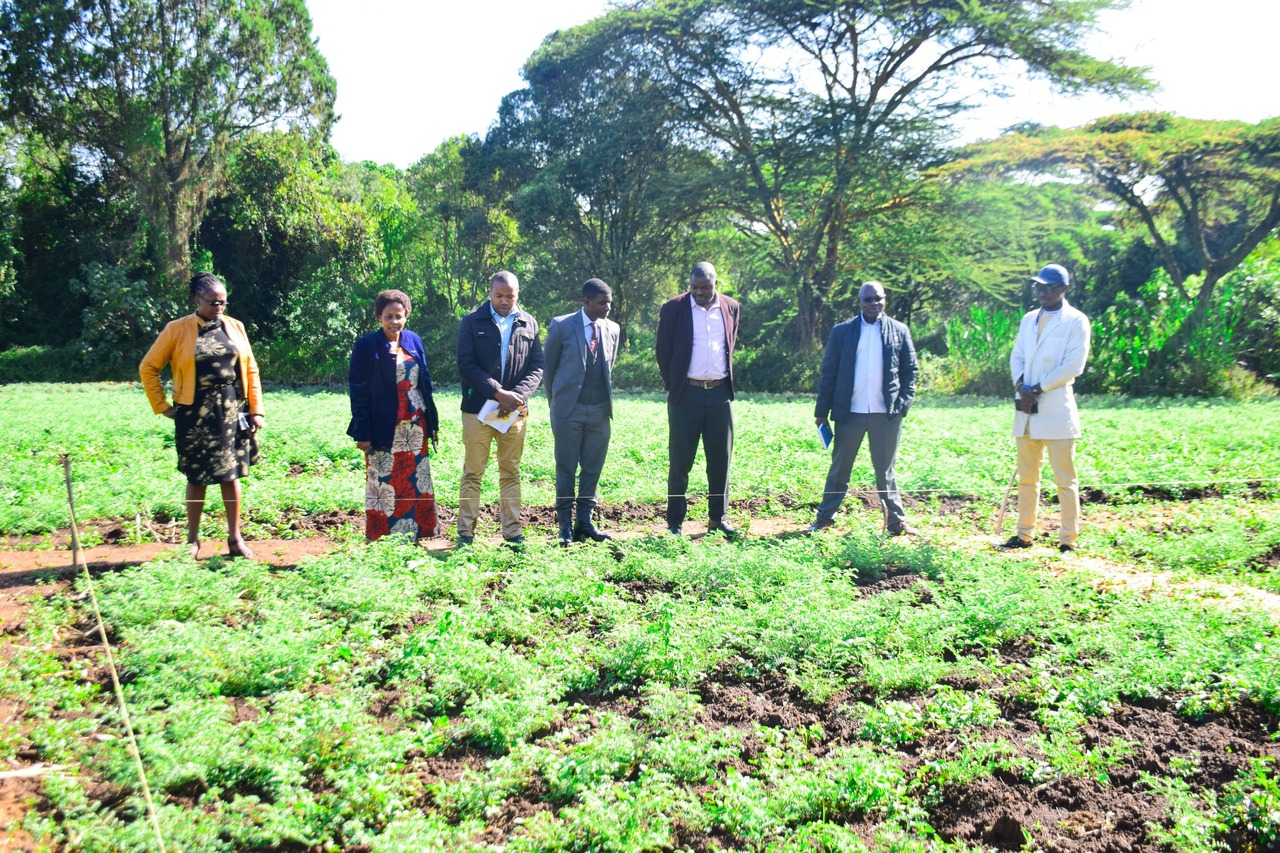
A key discussion point was the timely completion of master's and undergraduate studies for students supported under the TAGDev scholarship at Egerton University. Both institutions deliberated on effective strategies to assist students in completing their studies within the stipulated time frames, ensuring efficient academic progress.
The University of Eldoret shared insights from the Empowering Novel Agribusiness-Led Employment (ENABLE Youth) Program, which successfully built youth capacities through agribusiness incubation centers. The program focused on dairy, fish, and mushroom value chains, incorporating key components such as agribusiness and entrepreneurship training, youth financing and financial literacy, and program management and coordination. The successes, challenges, and lessons from the ENABLE Youth Program have been instrumental in shaping the implementation of TAGDev 2.0 at University of Eldoret. The institutions recognized the importance of leveraging these insights to enhance the effectiveness of the TAGDev initiative.
The visit highlighted the commitment of both institutions to collaborate in advancing the TAGDev 2.0 Program. By building on past successes and addressing challenges, Egerton University and the University of Eldoret aim to enhance youth empowerment, agribusiness innovation, and community transformation through targeted interventions. The engagement concluded with a mutual commitment to ongoing collaboration, knowledge sharing, and the continuous improvement of program strategies for greater impact in the agrifood system and entrepreneurship space.
Written By:
Ian Kamau.
Communication Intern, TAGDev 2.0 Program, Egerton University.
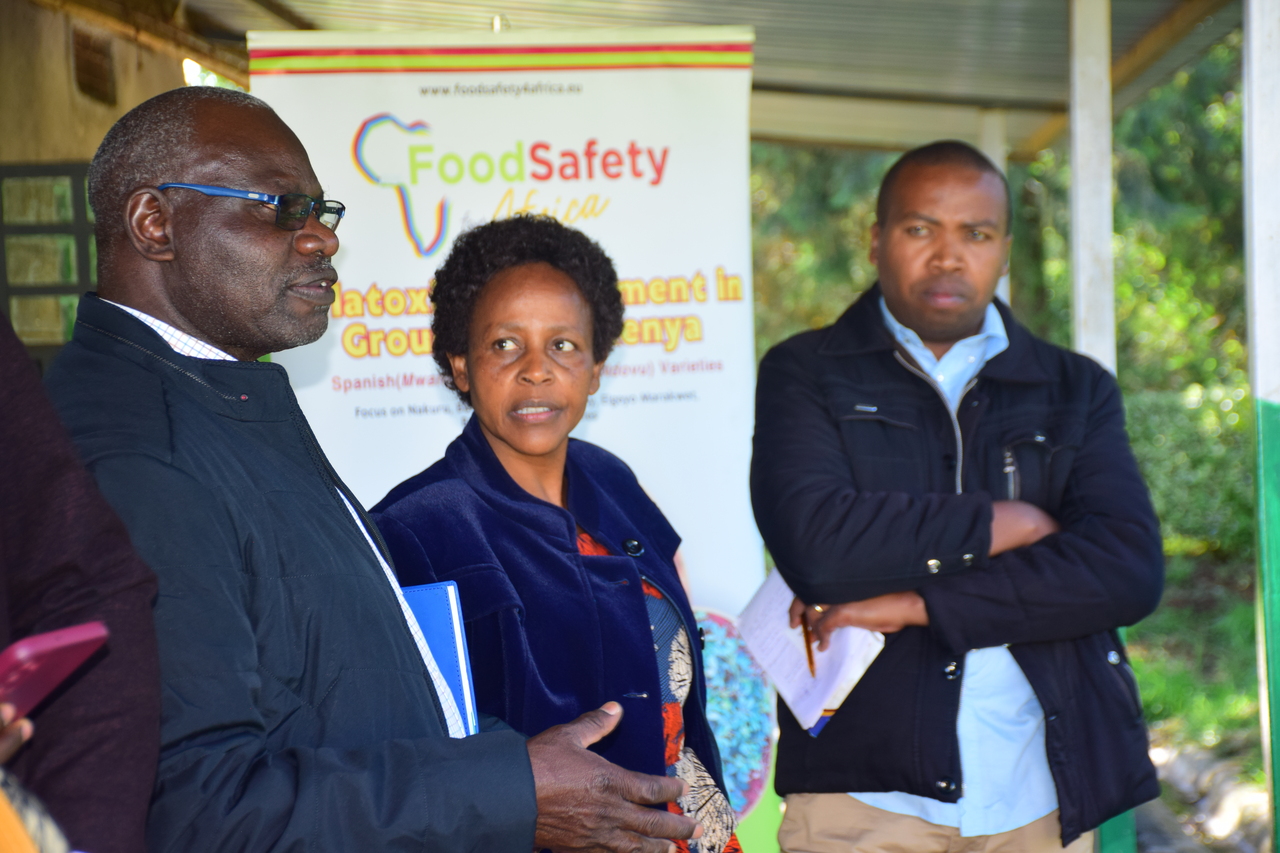

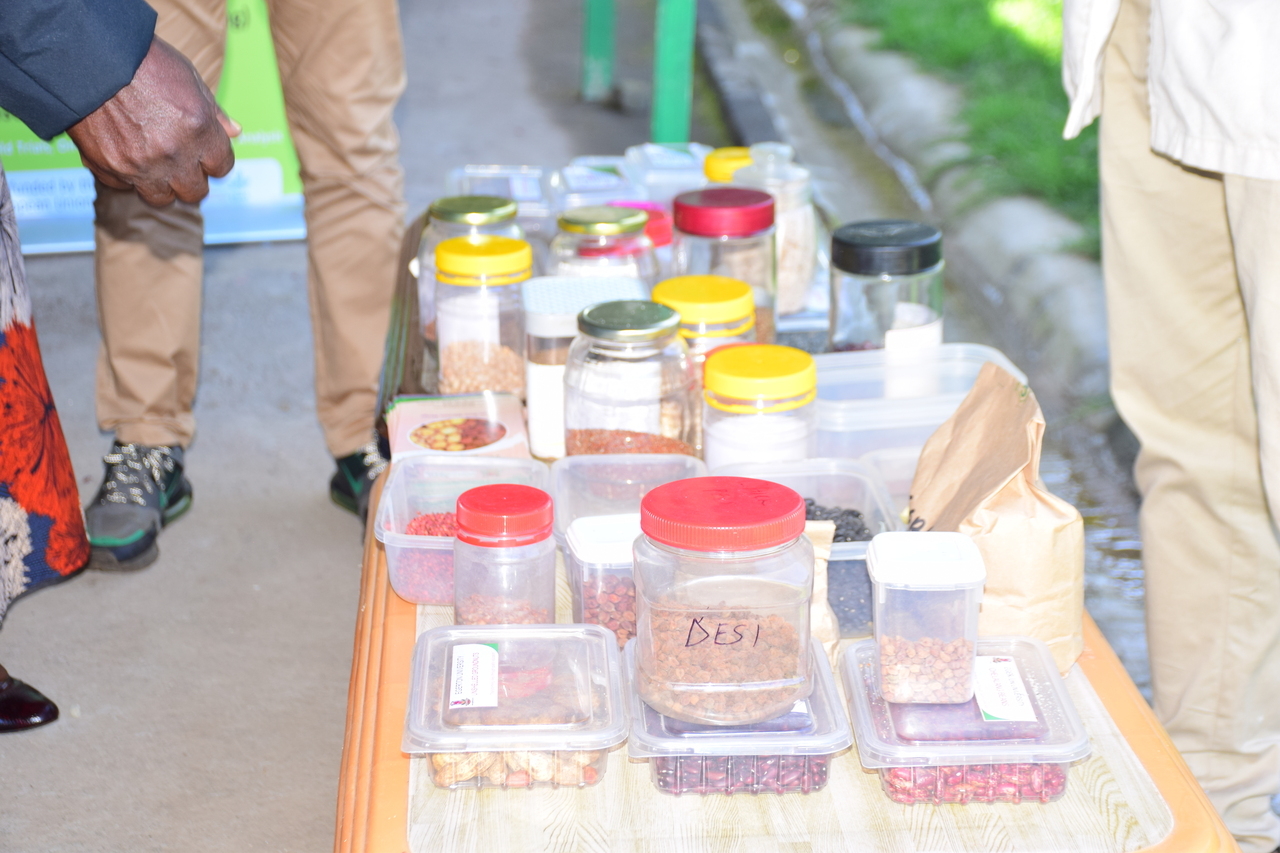
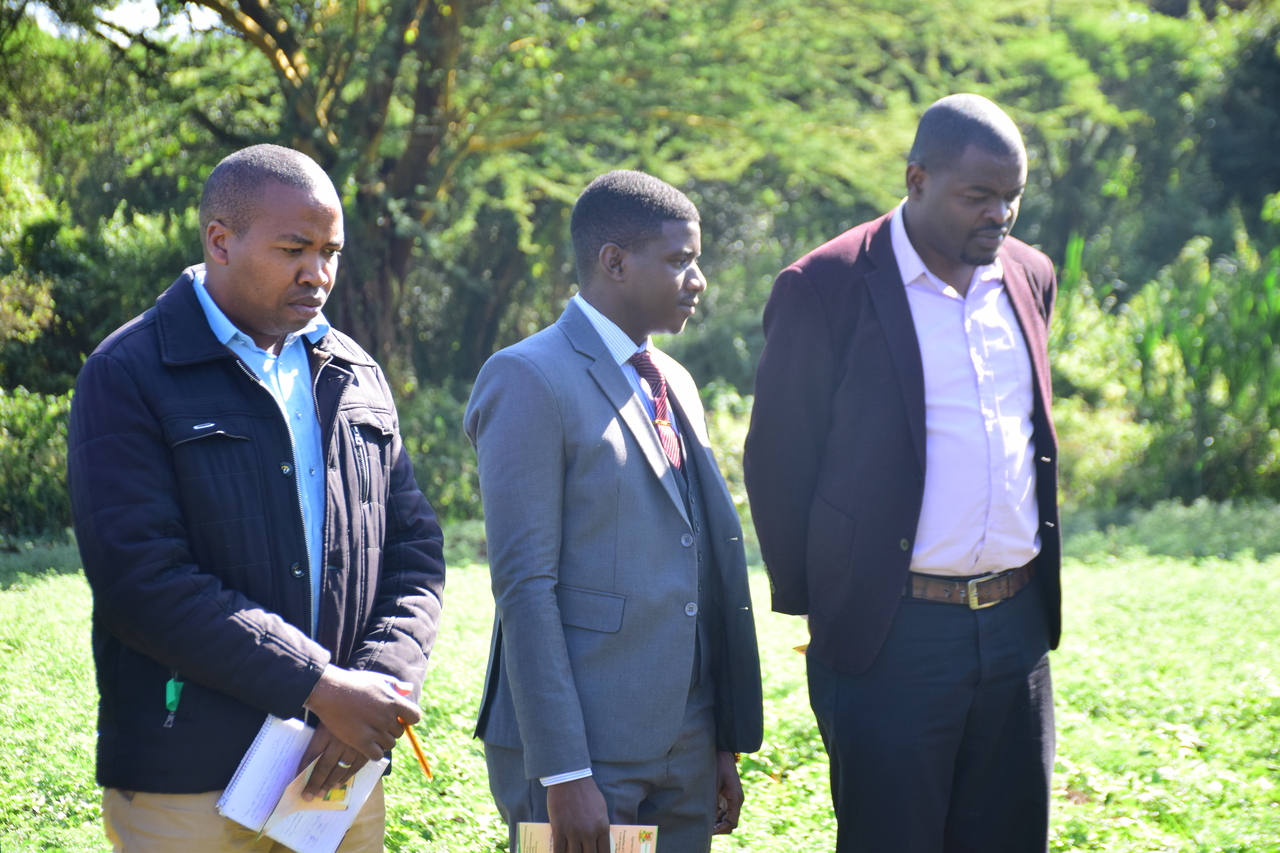
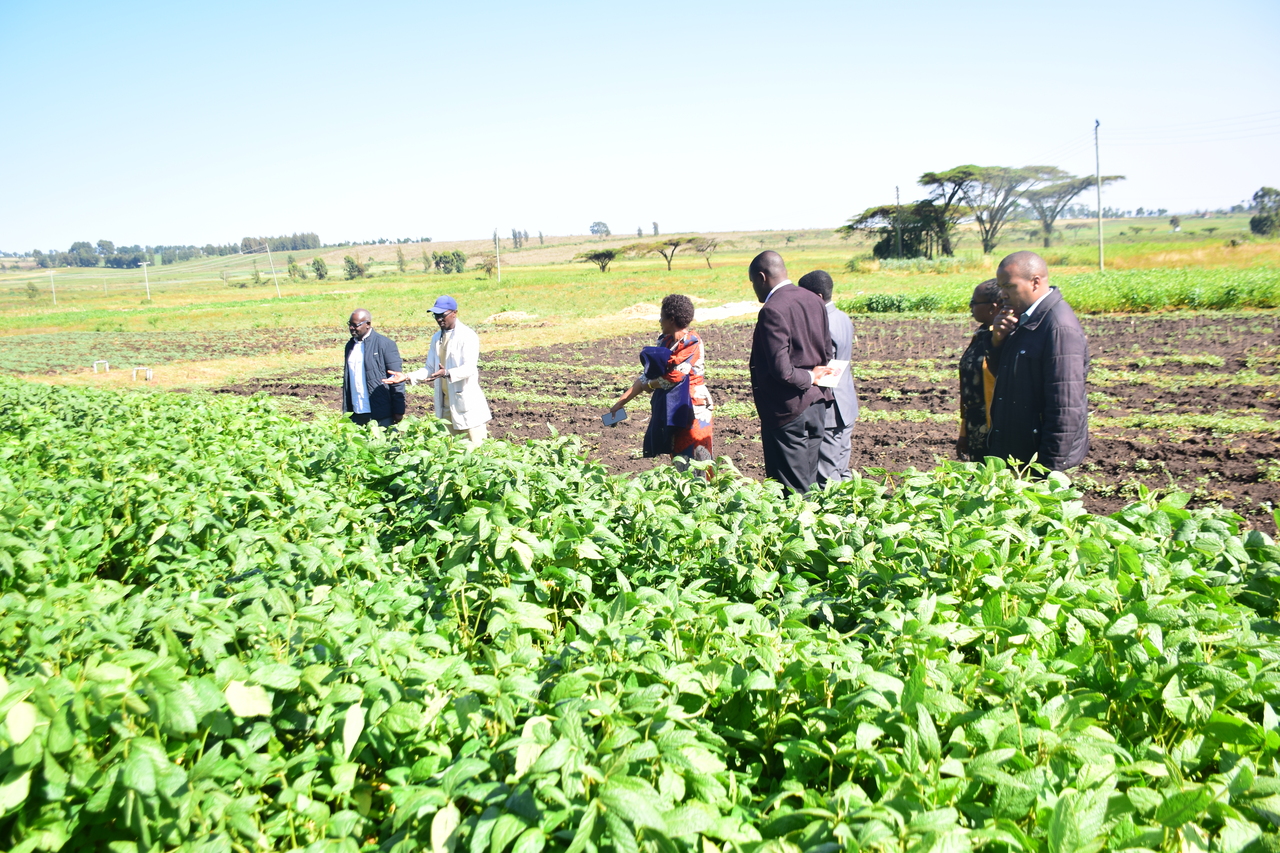
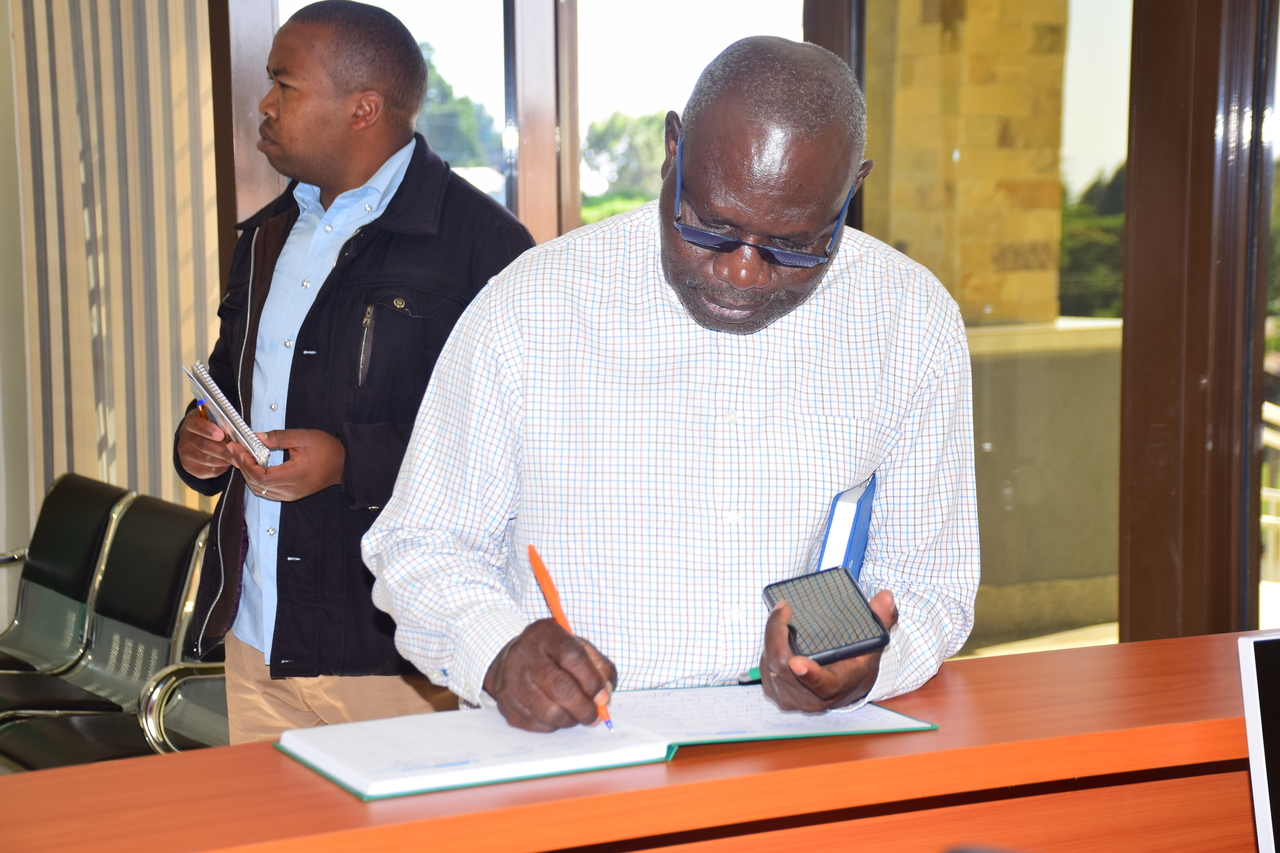
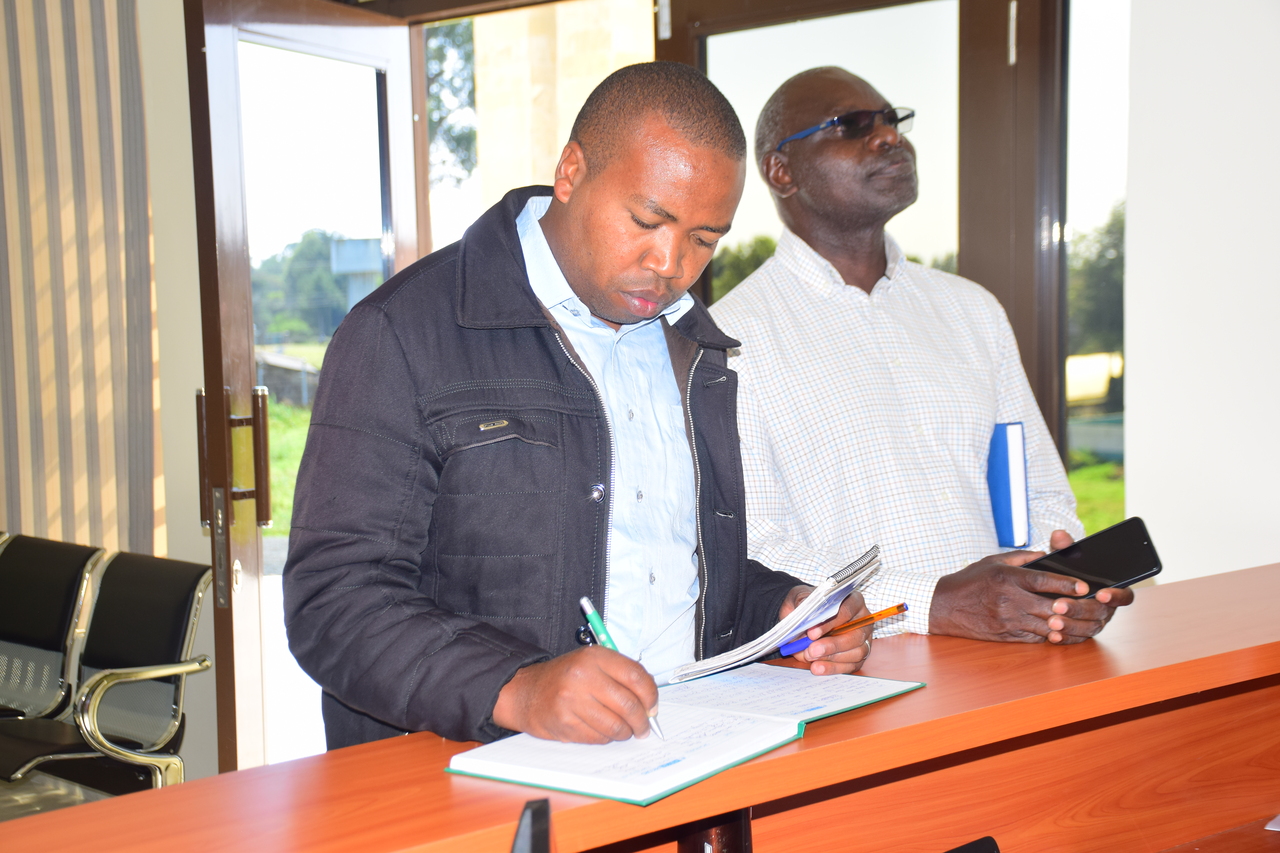
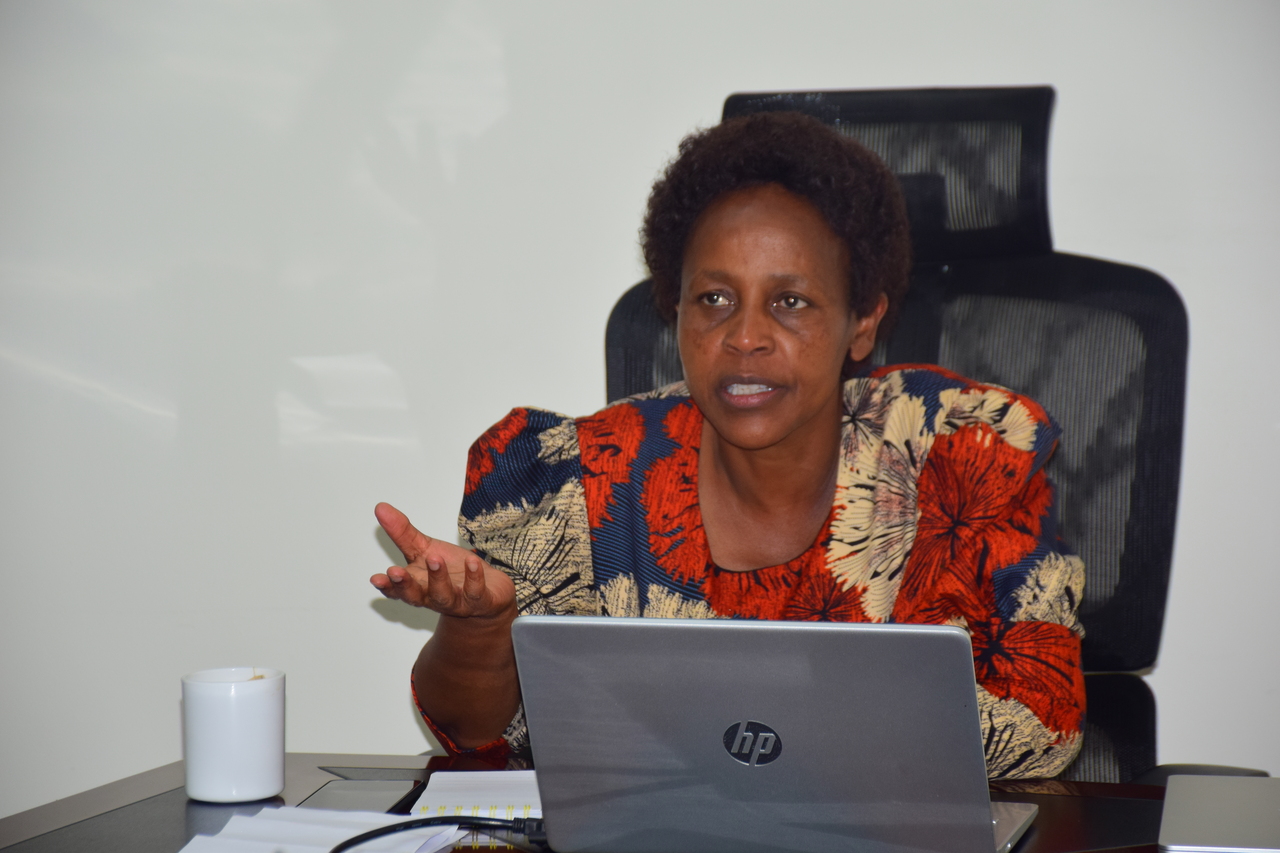
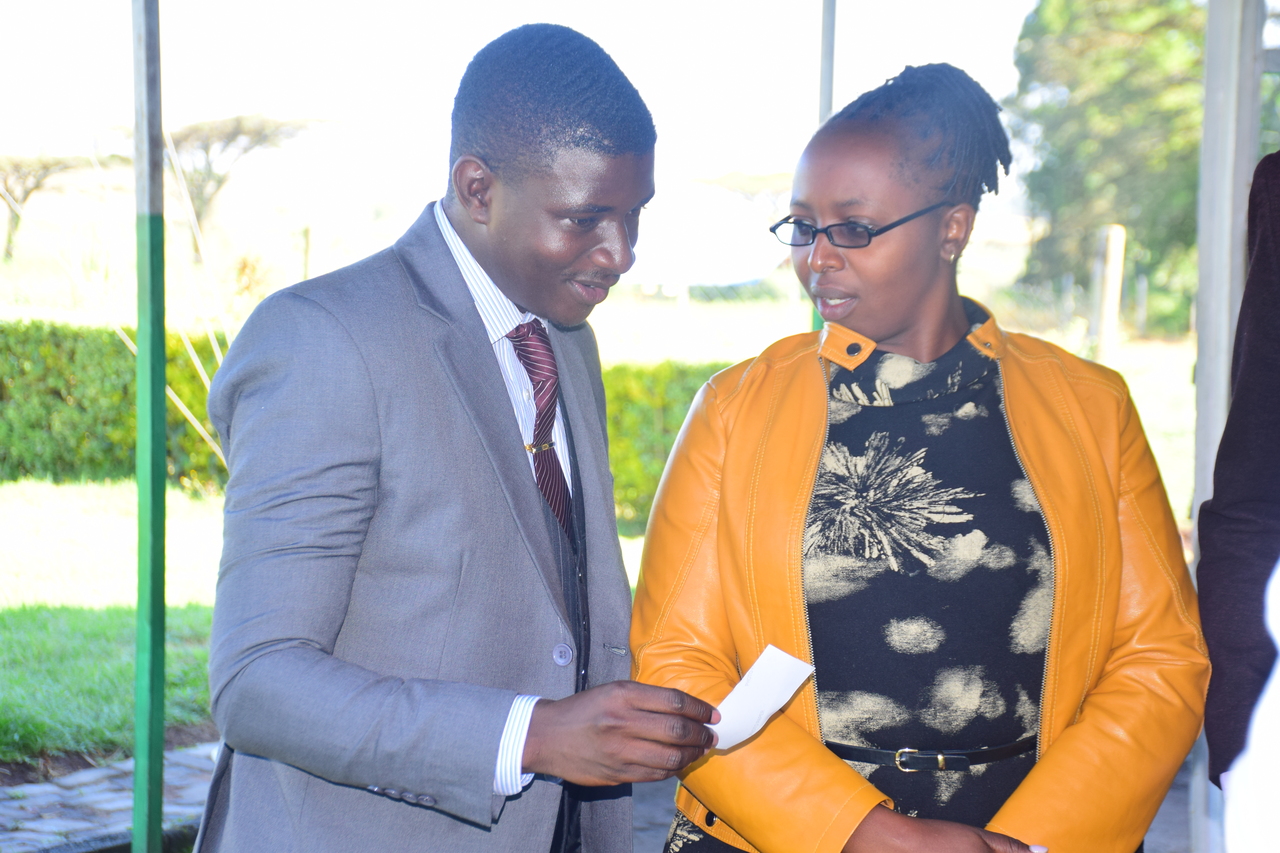
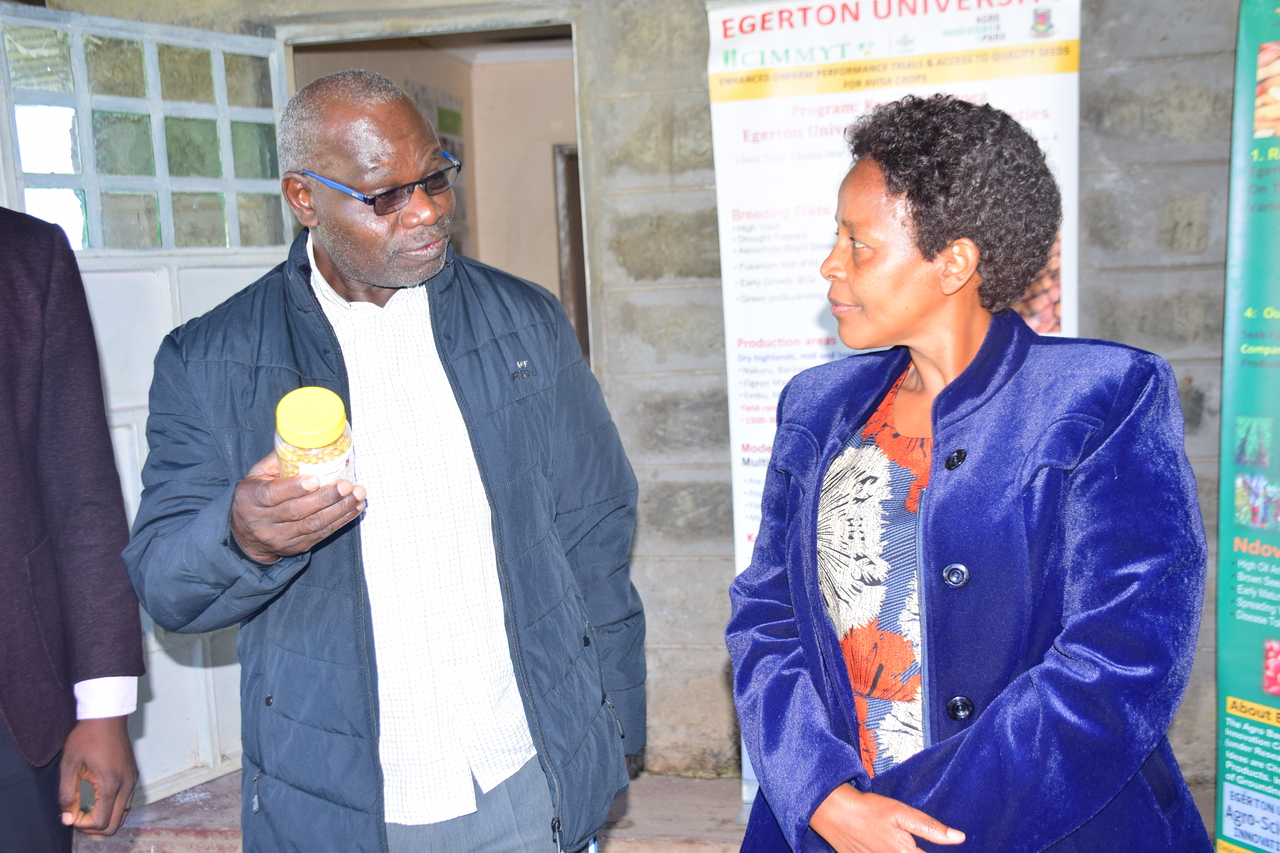
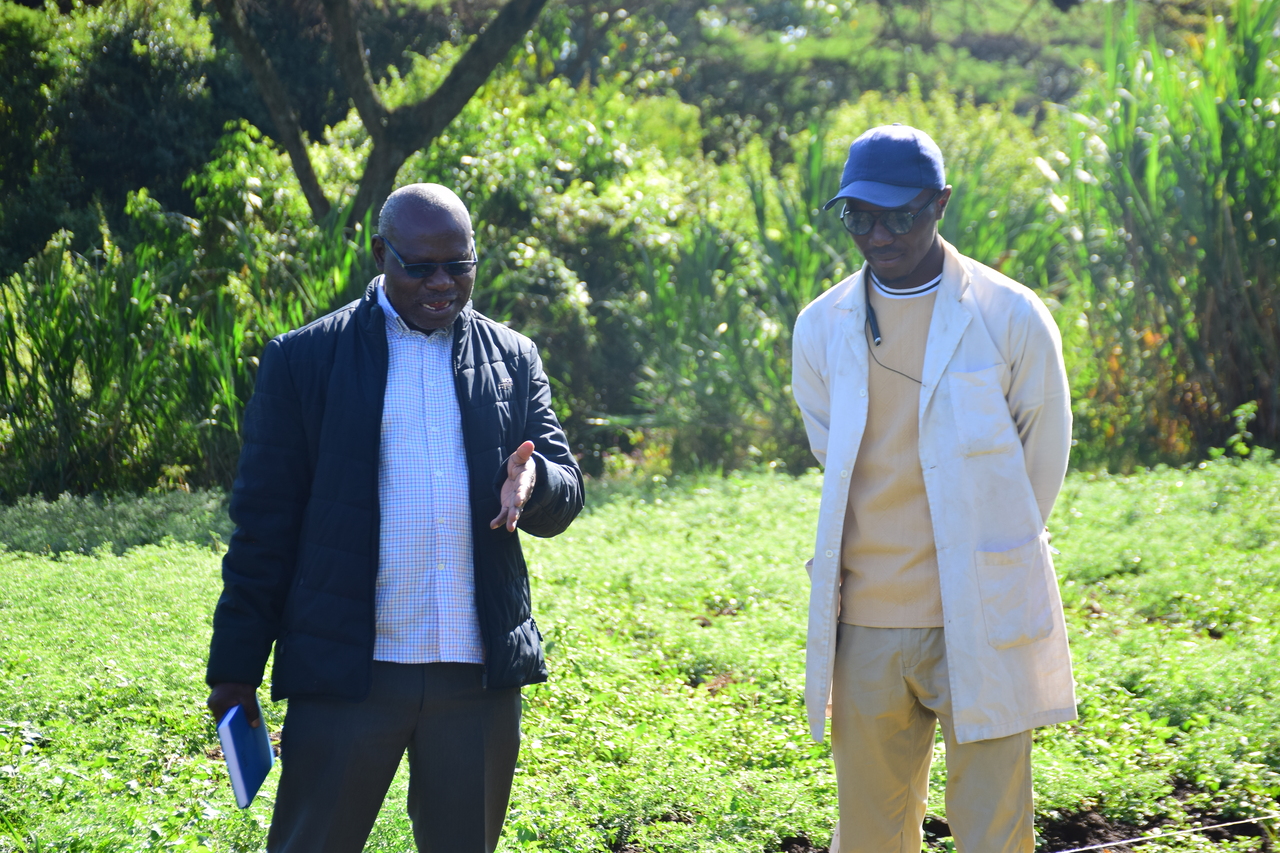
TAGDev 2.0 Egerton University today held a collaborative meeting with Nyandarua National Polytechnic to deliberate on areas of collaboration in the implementation of Agrifood Systems & Entrepreneurship Consortium ( ASEC) .
TAGDev 2.0, Egerton University led by the Program Coordinator Prof. Nancy Mungai paid a visit to Team Climate Change Naivasha (TCCN) on 28th January 2025. This engagement marked a crucial step in fostering collaboration between academic institutions and grassroots organizations to drive sustainable solutions for environmental protection and economic empowerment.
TCCN, a youth-led and registered Socio-Economic and Non-Governmental Environmental Organization, is committed to promoting environmental conservation and sustainable waste management practices in Naivasha sub-county. By actively engaging young people in eco-friendly initiatives, TCCN has played a pivotal role in transforming waste into wealth, reducing environmental degradation, and creating employment opportunities for vulnerable youth.
The visit by TAGDev 2.0 aimed to explore partnership opportunities that align with the broader objectives of green innovation, tree-growing initiatives, and job creation. With climate change posing a significant challenge to global food security and livelihoods, such collaborations are essential in fostering climate-resilient communities and sustainable agricultural practices.
During the meeting, representatives from both organizations deliberated on various strategic areas for collaboration. One of the key focus areas was tree-growing initiatives aimed at increasing forest cover and mitigating climate change effects. By leveraging TCCN’s expertise in community mobilization and TAGDev 2.0’s research and technical knowledge, the partnership seeks to various initiatives.
One of the critical areas of discussion was green innovation. The meeting highlighted the potential of upcycling waste materials into valuable products, promoting circular economy models, and enhancing agribusiness opportunities for young people. TCCN has been at the forefront of innovative waste management solutions, turning discarded plastics into useful items and biodegradable waste into organic fertilizers. TAGDev 2.0, through its engagement with agripreneurs, aims to support such innovations by providing mentorship, funding opportunities, and market linkages for youth-led green enterprises.
Job creation for vulnerable young women and men was also a key agenda of the discussions. The collaboration envisions skill-building programs targeting unemployed youth, equipping them with knowledge in agroecology, sustainable waste management, and environmental entrepreneurship. By integrating environmental conservation with economic empowerment, the initiative seeks to address both unemployment and environmental degradation, ensuring a just and sustainable future. To achieve sustainability, the members are going to be capacity built and incubated in green innovation. This approach will ensure that TCCN continues to thrive as a leading force in environmental conservation while equipping its members with essential skills to drive long-term change.
TAGDev 2.0 remains dedicated to empowering young people in agriculture and environmental sustainability through strategic partnerships.
Written By:
Ian Kamau.
Communication Intern, TAGDev 2.0 Program, Egerton University.





